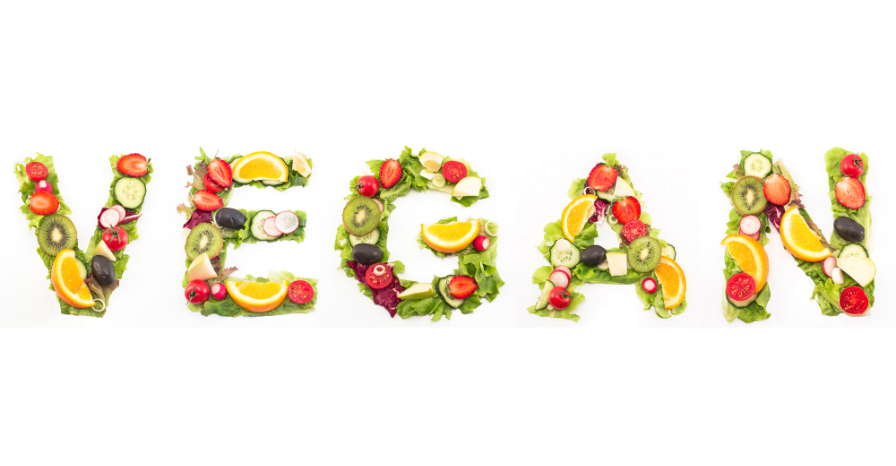
Life-changing benefits of Veganism
VEGAN ESSENTIALS |Every year more and more people are making the decision to go vegan, and for good reasons. Veganism is good for the environment, animal welfare, and your health. Studies have found that a plant-based diet can help reduce weight, combat type 2 diabetes, and promote a healthy heart. Eating more fruits, grains, and vegetables also puts less stress on our environment and lets animals live. Veganism is said to bring life-changing benefits.
Adopting a vegan lifestyle usually begins with transitioning to a vegan diet. Your diet is the key to experience the health benefits of being vegan. You can choose to be an unhealthy vegan or a healthy vegan, who eats predominately plant-based food. Healthy & balanced vegan diets are abundant in vitamins, folic acid, magnesium, and iron while also being low in cholesterol and saturated fats. From improving our immune system to saving more lives, the vegan lifestyle provides us with a bundle of health benefits like:
Lowers blood sugar levels
Making lifestyle changes such as adopting a healthy diet and increasing physical activity can help to reduce the risk of type 2 diabetes. Indeed, vegans tend to have lower blood sugar levels, higher insulin sensitivity and up to a 50–78% lower risk of developing type 2 diabetes. Many diabetics who have transitioned to a plant-based vegan diet, have reversed their type 2 diabetes.
Helps reduce weight
Losing weight can be frustrating and unsustainable. By adopting a plant-based diet, where you eat fresh fruits and vegetables, beans and legumes, as well as plant-based milks, other nondairy products, and meat alternatives, studies have concluded that losing weight is possible and more sustainable. However, the key as with all diets is focusing on nutrient-dense foods versus empty calories. For vegans, these foods would include things like fresh fruits and vegetables, whole grains, beans, legumes, nuts, seeds, nut butters, tofu, and quinoa. Plant foods tend to be easier on your digestion too.
Richer in nutrients
A whole-foods vegan diet, is abundant in whole grains, fruits, vegetables, beans, peas, nuts and seeds. These types of food items end up contributing to a higher daily intake of certain beneficial nutrients. Plant-based vegan diets tend to provide more fibre, antioxidants and beneficial plant compounds. They also appear to be richer in potassium, magnesium, folate and vitamins A, C and E. However, it is important to stay away from nutrient-poor, fast-food vegan options. Instead, base your diet around 'real' nutrient-rich whole plants and fortified foods. However, vegan diets to lack vitamin B12; hence, it is highly recommended that you opt for vitamin B12 supplement like Unived B12-veg or B12+D3.
Balancing hormones
Hormones such as oestrogen can be responsible for causing breast cancer if levels become too excessive. A New York study found levels of oestrogen can be increased by animal fats. Vegans have significantly lower oestrogen levels than non-vegans, in part because of the lower fat content of their diet. In addition, they have more of certain carrier molecules, called sex hormone binding globulin, which circulate in the blood and have the job of holding onto sex hormones– keeping them inactive until they are needed. Fatty foods do the reverse: they increase oestrogen.
Mental health
Research has revealed that vegans may be happier than their meat-eating counterparts. In fact it was discovered that vegans and vegetarians had lower scores on depression tests and mood profiles when compared to fish and meat-eaters. A vegan diet gives the body more energy and eventually your brain, will also have good fuel to function properly. Increased energy leads to increased fitness, and being more active, getting more exercise can positively impact your mental health. A plant-based diet also helps insomnia.
Protecting the environment & animal welfare
A plant-based diet is better for the planet as it requires less energy and farmland to feed a vegan. The production of meat and other animal products places a heavy burden on the environment– from crops and water required to feed the animals, to the transport and other processes involved from farm to fork. The vast amount of grain feed required for meat production is a significant contributor to deforestation, habitat loss and species extinction. Protecting the environment is beneficial to us all. Not only is the environment hurting from the meat industry, but also, animals.
In the meat industyr, animals are slaughtered in unthinkable in humane ways and treated like objects. By opting for a plant-based vegan diet, we are saving the environment and animals.
Veganism is a lifestyle, and for many it starts with making the switch to a plant-based vegan diet. An entirely plant-based diet has low health risks and great healthy benefits, but careful planning is needed to maintain nutritional balance. If you cannot take the plung and go vegan right away, you can stop eating animal produce gradually. You can begin by incorporating one meat alternative first, and then progress to other non-animal produce, eventually excluding animal produce completely. Do also keep in mind vitamin B12 supplementation.
Happy World Vegan Day!

